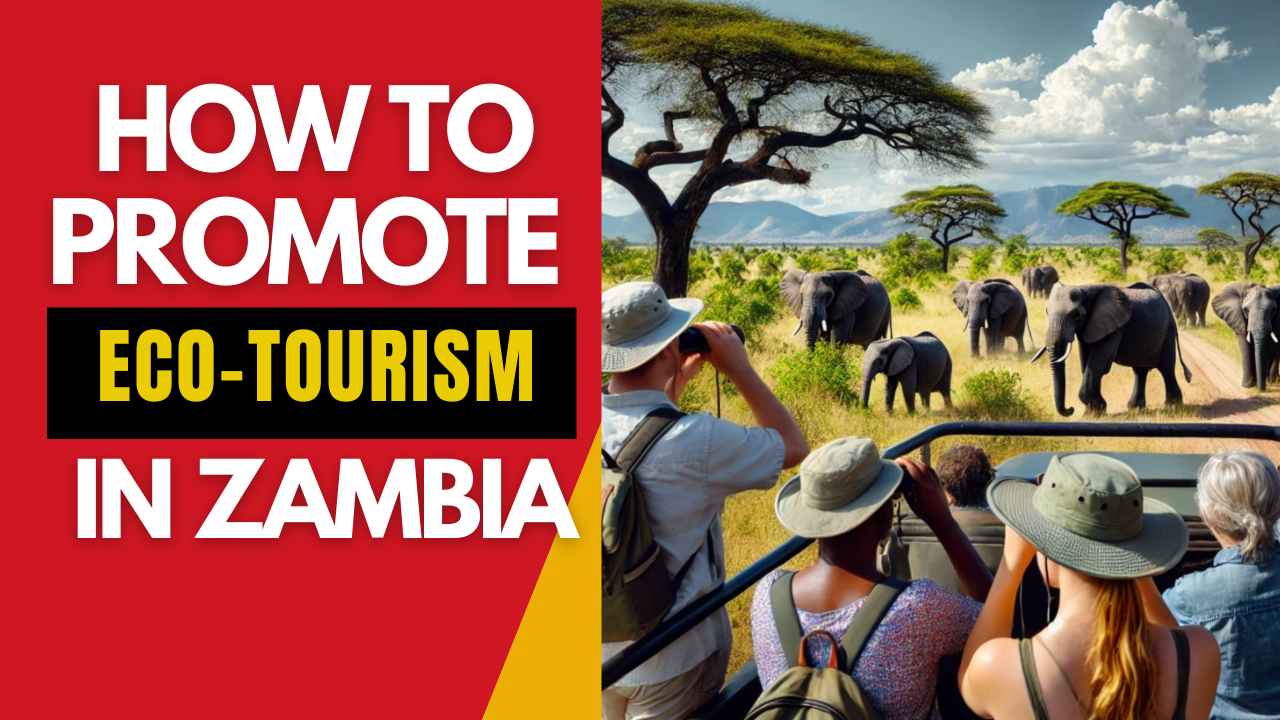Zambia is renowned for its breathtaking wildlife and stunning natural landscapes, making it a top destination for eco-tourism in Africa. As travelers increasingly seek environmentally responsible experiences, Zambia has the potential to position itself as a leading eco-tourism destination. Eco-tourism not only promotes environmental conservation but also supports local communities, providing them with sustainable income opportunities while preserving Zambia’s rich cultural heritage.

1. The Significance of Eco-Tourism in Zambia
Eco-tourism is a unique form of travel that emphasizes experiencing and preserving natural environments while benefiting local communities. In Zambia, eco-tourism plays a pivotal role in conservation efforts, particularly in safeguarding endangered species and preserving vital ecosystems. By promoting eco-tourism, Zambia can ensure the long-term sustainability of its abundant wildlife and diverse natural resources, making it a must-visit destination for eco-conscious travelers.
2. Conservation Efforts in Zambia’s National Parks
Zambia is home to some of Africa’s most iconic national parks and wildlife reserves, including South Luangwa National Park, Kafue National Park, and Lower Zambezi National Park. These protected areas are crucial for the conservation of wildlife, including elephants, lions, leopards, and a wide variety of bird species. Eco-tourism initiatives within these parks help fund essential conservation projects, such as anti-poaching operations, habitat restoration, and wildlife monitoring programs. By visiting these parks, tourists contribute directly to the preservation of Zambia’s natural heritage.
3. Empowering Local Communities Through Eco-Tourism
One of the key benefits of eco-tourism is its ability to provide sustainable income for local communities living near national parks and wildlife reserves. Through eco-tourism, locals can engage in various tourism-related activities, such as guiding, crafting, and hospitality services, all while preserving and showcasing their cultural traditions. By actively involving local communities in eco-tourism, Zambia ensures that the economic benefits of tourism are shared equitably, reducing poverty and promoting social development in these regions.
4. Eco-Tourism Activities in Zambia
Zambia offers a wide range of eco-tourism activities designed to provide an immersive and environmentally friendly travel experience. From thrilling wildlife safaris and bird watching excursions to serene nature walks and cultural tours, Zambia’s eco-tourism options cater to all types of travelers. Many lodges and campsites within the national parks have adopted eco-friendly practices, such as utilizing solar power, implementing rainwater harvesting systems, and promoting responsible waste management. These initiatives ensure that visitors can enjoy Zambia’s natural beauty while minimizing their environmental footprint.
5. Challenges and Opportunities in Zambia’s Eco-Tourism Sector
Despite its vast potential, eco-tourism in Zambia faces several challenges. Limited infrastructure, lack of awareness, and competition from other African eco-tourism destinations are some of the barriers to growth. However, with strategic marketing efforts, investment in tourism infrastructure, and partnerships with international conservation organizations, Zambia can overcome these challenges. By highlighting its unique offerings and commitment to sustainable tourism, Zambia can establish itself as a top eco-tourism destination, attracting travelers from around the world who are passionate about nature and conservation.
6. The Role of Government and NGOs in Promoting Eco-Tourism
The Zambian government, in collaboration with non-governmental organizations (NGOs), plays a crucial role in the promotion and development of eco-tourism. Policies and initiatives aimed at conserving wildlife, protecting natural habitats, and supporting local communities are essential for the growth of eco-tourism. Programs such as the Zambia Community-Based Natural Resource Management (CBNRM) initiative have been particularly successful in involving local communities in conservation and eco-tourism activities. These collaborative efforts are key to ensuring that eco-tourism remains a sustainable and beneficial industry for all stakeholders.
Conclusion: Zambia’s Future as a Leading Eco-Tourism Destination
Eco-tourism offers Zambia a unique opportunity to preserve its wildlife and natural resources while supporting local communities and promoting cultural heritage. By embracing eco-tourism, Zambia can attract environmentally conscious travelers, generate sustainable income, and ensure the long-term conservation of its natural wonders. As global demand for eco-friendly travel continues to rise, Zambia is well-positioned to become a premier eco-tourism destination in Africa, offering visitors an unforgettable experience of its pristine wilderness and vibrant culture. Whether you’re a nature enthusiast, a conservation advocate, or simply a traveler seeking an authentic and sustainable adventure, Zambia is a destination that should be at the top of your list.



I am starting an eco-tourism venture in Rufunsa district in Shikabeta chiefdom. How can you help me.
Thank you so much for reaching out and sharing your exciting initiative! Starting an eco-tourism venture in Rufunsa’s Shikabeta Chiefdom is a wonderful step—not just for sustainable tourism, but also for preserving our rich natural and cultural heritage.
At KitweOnline, we’re committed to supporting local ventures like yours in a few key ways:
Publicity & Awareness – We can feature your venture in an article or interview to introduce it to our audience. This can help build visibility and attract early interest.
Let’s talk more about what stage your project is at and what kind of support would be most helpful to you. Feel free to message us directly or email us at kitweonline@gmail.com.
We’re excited about your vision and look forward to being part of your journey!